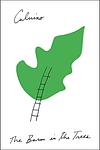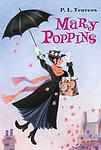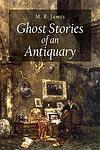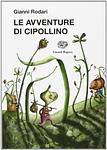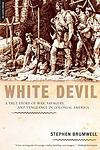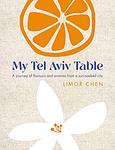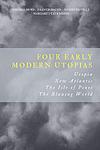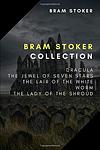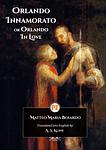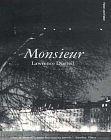The Greatest Italian, English "Speculative Fiction" Books of All Time
Click to learn how this list is calculated.
This list represents a comprehensive and trusted collection of the greatest books. Developed through a specialized algorithm, it brings together 300 'best of' book lists to form a definitive guide to the world's most acclaimed books. For those interested in how these books are chosen, additional details can be found on the rankings page.
Genres
Speculative fiction is an umbrella genre encompassing narrative fiction with supernatural or futuristic elements. This includes genres such as science fiction, fantasy, horror, supernatural fiction, superhero fiction, utopian and dystopian fiction, apocalyptic and post-apocalyptic fiction, and alternate history. The unifying factor of speculative fiction is its departure from the narrative constraints of reality, exploring imaginative and often profound questions that challenge our understanding of the world and our place within it. These stories often delve into themes like the human condition, social commentary, and the exploration of philosophical and ethical dilemmas through the lens of the fantastical or the yet-to-be-possible. By pushing the boundaries of the known, speculative fiction invites readers to consider the myriad possibilities of existence and the potential consequences of our actions in worlds that are, at once, vastly different from and eerily similar to our own.
Countries
Date Range
Reading Statistics
Click the button below to see how many of these books you've read!
Download
If you're interested in downloading this list as a CSV file for use in a spreadsheet application, you can easily do so by clicking the button below. Please note that to ensure a manageable file size and faster download, the CSV will include details for only the first 500 books.
Download-
1. Decameron by Giovanni Boccaccio
"Decameron" is a collection of 100 stories told by a group of seven young women and three young men sheltering in a secluded villa just outside Florence to escape the Black Death, which was afflicting the city. The tales, which range from the erotic to the tragic, the hilarious to the instructional, are embedded in a rich framework narrative that provides a detailed portrait of the society of the Italian Renaissance.
-
2. The Baron in the Trees by Italo Calvino
"The Baron in the Trees" tells the story of a young Italian nobleman who, in a fit of rebellion, climbs a tree and vows never to touch the ground again. He spends the rest of his life living in the treetops, observing the world from above, and engaging in adventures with bandits, revolutionaries, and lovers. Despite his self-imposed exile, he becomes a symbol of freedom and individuality, ultimately influencing the course of European history.
-
3. Northanger Abbey by Jane Austen
"Northanger Abbey" is a coming-of-age novel that follows the story of Catherine Morland, a young and naive girl who is invited to stay with the wealthy Tilney family at their estate, Northanger Abbey. Catherine's imagination is fueled by her love for gothic novels, leading her to create fantastical scenarios in her mind. As she navigates the complexities of society and falls in love, Catherine learns valuable lessons about the dangers of letting her imagination run wild and the importance of distinguishing reality from fiction.
-
4. Mary Poppins by PL Travers
In this beloved classic, a magical and enigmatic nanny named Mary Poppins arrives at the Banks' household to care for their mischievous children. With her peculiar and extraordinary abilities, Mary Poppins takes the children on whimsical adventures, teaching them valuable life lessons along the way. As the family learns to appreciate the wonder and joy in everyday life, Mary Poppins proves that even the most ordinary moments can be extraordinary.
-
5. Ghost Stories Of An Antiquary by M. R. James
"Ghost Stories of an Antiquary" is a collection of chilling tales that delve into the supernatural and macabre. Written by M. R. James, these stories transport readers to eerie settings, where ancient artifacts, haunted houses, and vengeful spirits lurk. With a masterful blend of suspense and atmospheric descriptions, James weaves narratives that leave readers on the edge of their seats, questioning the boundaries between the real and the supernatural. Each story is a haunting exploration of the human psyche and the terrifying unknown, making this collection a must-read for fans of classic ghost stories.
-
6. The Adventures Of Pinocchio by Carlo Collodi
"The Adventures of Pinocchio" is a classic children's novel that follows the mischievous adventures of a wooden puppet named Pinocchio. As he strives to become a real boy, Pinocchio encounters a series of trials and temptations, learning valuable life lessons along the way. From encounters with talking animals to being swallowed by a giant fish, Pinocchio's journey is filled with humor, excitement, and moral dilemmas. With themes of honesty, bravery, and the consequences of one's actions, this timeless tale captivates readers of all ages.
-
7. The Arabian Nightmare by Robert Irwin
"The Arabian Nightmare" is a captivating and surreal journey through the dreams and nightmares of a young scholar named Abdulla. Set in medieval Cairo, the book explores the blurred lines between reality and fantasy as Abdulla becomes entangled in a web of magical creatures, mythical beings, and supernatural occurrences. With richly descriptive prose and a deep understanding of Arabian folklore, the story delves into themes of identity, love, and the power of storytelling, leaving readers questioning the nature of dreams and the boundaries of the human imagination.
-
8. The Adventures Of Cipollino by Gianni Rodari
"The Adventures of Cipollino" is a delightful children's book filled with whimsical characters and enchanting adventures. Set in a world of fruits and vegetables, the story follows the brave and mischievous Cipollino, a little onion, as he leads a rebellion against the tyrannical Prince Lemon and his oppressive regime. With a blend of humor, fantasy, and social commentary, this captivating tale teaches valuable lessons about justice, friendship, and the power of standing up for what is right.
-
9. The Orlando Furioso by Lodovico Ariosto
"The Orlando Furioso" is an epic poem that tells the story of Orlando, a knight who falls madly in love with a pagan princess. His unrequited love drives him to madness, causing him to abandon his knightly duties and wander aimlessly. The poem also includes various subplots involving other knights and their adventures, including battles with monsters and sorcerers, quests for magical artifacts, and romantic entanglements. The work is known for its complex structure, richly detailed descriptions, and vividly drawn characters.
-
10. The White Devil by John Webster
"The White Devil" is a gripping and darkly captivating play that delves into the themes of revenge, corruption, and deceit. Set in 16th century Italy, the story follows the lives of two powerful families, the Brachiano and the Medici, as they engage in a web of treachery and manipulation. As tensions rise and secrets unravel, the characters are consumed by their own desires, leading to a tragic and bloody climax. With its complex characters and intricate plot, "The White Devil" explores the depths of human nature and the destructive consequences of unchecked ambition.
-
11. The Castle of Crossed Destinies by Italo Calvino
"The Castle of Crossed Destinies" is a unique narrative where the characters, unable to speak, tell their stories through the use of tarot cards. The book is divided into two parts, each set in a different castle, and features a variety of characters, including knights, kings, and queens, who each use the cards to weave their own tales. The stories are interconnected, creating a complex web of tales that explore themes of fate, destiny, and the interconnectedness of human experiences.
-
12. The City Of The Sun by Tommaso Campanella
"The City of the Sun" is a philosophical work that presents a visionary society where goods, women, and children are held in common. It describes a utopian city governed by a theocratic and philosophical elite, where the inhabitants live harmoniously, dedicating their lives to knowledge, virtue, and the collective well-being. The city is structured with concentric walls adorned with scientific and artistic knowledge, reflecting the society's dedication to intellectual enlightenment and the eradication of ignorance and vice. The work serves as a critique of European society of the time, proposing a radical alternative that emphasizes communal living, education, and the blending of religion and science as the foundations of a just and prosperous community.
-
13. The Blazing World A New World by Margaret Cavendish
"The Blazing World" is a pioneering work of science fiction and feminist literature that tells the story of a young woman who is kidnapped by a merchant and taken on a voyage to the North Pole, where she enters a parallel universe. In this other world, she becomes the empress of a society inhabited by a variety of hybrid creatures. The empress engages in philosophical discussions with the inhabitants and uses her power to lead a grand intellectual and military campaign back in her own world. The narrative explores themes of power, gender, and the role of science and knowledge, as the protagonist asserts her authority in a world that reflects the author's imaginative and intellectual ambitions.
-
14. The Sheep Look Up by John Brunner
"The Sheep Look Up" is a dystopian science fiction novel that presents a grim and polluted future where environmental degradation and overpopulation have reached catastrophic levels. The story follows various characters as they navigate a world plagued by toxic pollution, food shortages, and rampant disease outbreaks. With a sharp critique of corporate greed and government negligence, the novel explores the consequences of humanity's disregard for the environment and the urgent need for change.
-
15. The Jewel Of Seven Stars by Bram Stoker
"The Jewel of Seven Stars" is a gripping gothic horror novel that follows the story of a young archaeologist who becomes entangled in a mysterious and ancient curse. When an Egyptian mummy is brought to London, strange occurrences begin to unfold, leading the protagonist on a perilous journey to uncover the secrets of an ancient queen and her quest for immortality. As the suspense builds, the protagonist must confront supernatural forces and make a desperate attempt to break the curse before it consumes them all.
-
16. Orlando Innamorato by Matteo Maria Boiardo
The book is an epic poem that blends history, myth, and chivalric romance, recounting the adventures of its eponymous hero, Orlando, a knight of Charlemagne's court. Set against the backdrop of the war between Charlemagne's Christian paladins and the Saracen army that has invaded Europe, the narrative weaves a complex tapestry of love, valor, and enchantment. The protagonist, driven by his unrequited love for the beautiful Angelica, faces numerous trials and battles, encountering wizards, mythical creatures, and various magical artifacts. The poem is notable for its rich interplay of fantasy and reality, as well as its influence on later literature, particularly in the development of the Renaissance chivalric epic.
-
17. T Zero by Italo Calvino
"T Zero" is a collection of complex, imaginative stories that blend scientific concepts, mathematical structures, and literary experimentation. The work challenges the boundaries of time, space, and narrative convention, weaving together a tapestry of tales that explore the nature of reality, causality, and human perception. Through a series of thought-provoking vignettes, the book delves into the paradoxes of existence, employing a playful yet profound use of language to question the very framework of storytelling and the universe it attempts to describe.
-
18. Monsieur, Or The Prince Of Darkness by Lawrence Durrell
"Monsieur, Or The Prince Of Darkness" is a captivating novel that explores the complex and enigmatic life of a man known as Monsieur. Set against the backdrop of post-war Europe, the story delves into Monsieur's mysterious past, his involvement in espionage, and his relationships with various intriguing characters. Through vivid prose and intricate storytelling, the book delves into themes of identity, love, and the blurred lines between good and evil, leaving readers questioning the true nature of Monsieur until the very end.
Reading Statistics
Click the button below to see how many of these books you've read!
Download
If you're interested in downloading this list as a CSV file for use in a spreadsheet application, you can easily do so by clicking the button below. Please note that to ensure a manageable file size and faster download, the CSV will include details for only the first 500 books.
Download
